HOME

Reposted
Then Moses stretched out his hand over the sea. The Lord drove the sea back by a strong east wind all night, and turned the sea into dry land
The east wind is the spirit, in metaphysics, wind is always the spirit, the dry land is you devoid of the spirit, in the Bible symbolism the dry land is always the physical.
So those Israelites? The ones who came up out of Egypt few years back? They're headed this way! What's more, the trick they did with the Red Sea? They did it again with the Jordan River!
The river just stopped, and they walked across on dry land! And then get this: they set up camp and all the men gathered together and cut the tips of their penises off! I'm telling you, those guys serve a God who is powerful.
With all the miraculous happenings that center around the Israelites, however, one might wonder at the sort of "anti-miracle" that occurred to them. Indeed, it took them 40 years to complete a journey that conceivably could have been done in ten days.
Now there are various aspects to consider like the fact that with such a large group of people, travel is difficult; everyone is forced to go the speed of the slowest member of the group. Furthermore, one must remember that they had to make a pit stop to pick up the Law, which must have taken some time to write down. That's hardly enough to slow them by a year, much less forty.
Coming back full circle to the original issue, it is something absurd about taking forty years to complete a ten-day journey, and indeed there is. Of course the real reason this happened according to the Bible is that it was due indirectly to the murmuring.
The Israelites chose not to go into the Promised Land at the appointed time, so God essentially said, "Okay, then we'll wait forty years and try again when you're really ready." The full explanation is to be found in the book of Numbers. Forty is the Physical.
REMEMBER
The Veil of Allegory
Maimonides speaking of the Book of Genesis said, "We ought not to take literally that which is written in the story of Creation, nor entertain the same ideas of it as are common with the vulgar.
If it were otherwise, our ancient sages would not have taken so much pains to conceal the sense, and to keep before the eyes of the uninstructed the veil of allegory which conceals the truth it contains."
Jerome said, "The most difficult and obscure of the holy books contain as many secrets as they do words, concealing many things even under each word."
Mosheim said that all the Fathers of the second century attributed a hidden and mysterious sense to the words of Scripture.
Origen asked, "What man is so simple as to believe that God, as a gardener planted a garden in the East? That the Tree of Life was a real tree which could be touched, and of which the fruit had the power of conferring immortality?"
This tree mentioned by Origen is the kabalistic Tree of Life or spine in man. Immortality is achieved by the raising of consciousness (in terms of vibrational frequencies) from the Lower Self to the Higher Self, represented by Tiphareth, the heart center on the middle pillar (spine) of the Kabalistic Tree of Life.
The Mysteries of the Kingdom (I Corinthians)
What man knoweth the things of a man save the Spirit of a man which is in him. (2.11)
We speak not in the words man's wisdom teacheth but which the Holy Ghost (as Light) teacheth. (2.13)
We speak the wisdom of God in a mystery, even the hidden wisdom which God ordained before the world unto our glory. (2.7)
We speak wisdom among them that are perfect: yet not the wisdom of this world. (2.6)
Let a man so account of us as of the ministers of Christ, and stewards of the mysteries of God. (4.1)
Judge nothing until the Lord comes, who both will bring to light the hidden things of darkness and will make manifest the counsels... then shall every man have praise of God. (4.5)
These things I have in a figure (or symbol) transferred to myself (Paul) and to Apollos (Sun-Monad). He will come (illuminate the Lower Self) when he shall have convenient time. (16.12)
The natural man receiveth not the things of the Spirit of God; for they are foolishness unto him: neither can he know them because they are spiritually discerned. (2.14)
We have the mind (Higher Mind) of Christ. (2.16)
Metaphysical Interpretation Of The Book of Exodus
Exodus
Part 1
Deliverance of the Soul
In the exodus allegory, Moses represents the intellect.
In the original Greek writing, Moses parted the sea of reeds, not the red sea.
It is the sea of reeds, because reeds grow in the swamps.
here the swamps represent the the emotional forces below the diaphragm, that control the mind.The thought patterns that ruin life all about.
The Pharaoh represents the EGO, and Egypt represents the barrenness of the spiritual being.The negative thought patterns, holding your consciousness in bondage to the flesh. "Flesh pots of Egypt"
Moses (the intellect) through reading, learning and understanding, leads you to the promise land (the higher mind), This happens in meditation, by separating from thought.
The 40 years in the wilderness represents living life purely off of the physical nature, because the human fetus gestation period is 40 weeks. it simply means living apart from the higher spiritual consciousness.
Throwing down his rod and turning it into a serpent, is the kundalini experience.
So we must let our intellect (Moses) lead us out of bondage from the Pharaoh (the lower mind), and bring us to the promised land (the higher state of consciousness).
We must make our exit, or exodus away from the control of the lower ego mind.
Notice in the story, that Moses died the day before the Is Ra El ites entered the promised land. WHY?
Because the Intellect, the physical and the emotional cannot go there, because they are part of the lower triad of consciousness, that must be killed out, in order for the purely spiritual to take over.
It is the strory of meshac, shedrach and abednego in the book of Daniel.
Bring God your Seven lambs, seven calves, Seven goats etc, and burn them on the alter of god, for he loves the smell of those dead burnt animals, and the taste of their blood. This is mythology, explaining, that when the serpent energy touches the Fornix (furnace ) area of the brain your animal nature will be smote before gods alter.
The intellectual, the emotional, and the Physical. Meshac, shedrach and abendigo went into the fire heated SEVEN times and the fourth (christ) spiritual man appeard.
In the Bible there's some seven hundred times god had someone bring seven animals to his alter to offer a burnt offering, It's your LOWER animal nature, rising through the seven seals, seven vials, seven candlesticks, seven diadems, seven churches of asia, of course asia, that's where the kundalini knowledge came from
INDIA the EAST
Meshac, shedrach and abendigo
the Physical, the intellectual and the emotional
all three melded into the one spiritual electron from above.
Furnace heated SEVEN times is the solar plexus energy rising through the seven chakras
"and there were three gates to the south, three gates to the west, three gates to the north, and three gates to the EAST, says the BIBLE. There's your twelve cranial nerves, or gates to your city (brain).
Just like in the movie the wizard of OZ, we must open the curtain and see that the boogie men of religious institutions have been pulling the levers and pushing the buttons, creating the thundering lies, and keeping you afraid from abandoning them, and from knowing the truth. Now we can see through that glass clearly.
You have no need for religious edifice's anymore
We now begin the second Book of Moses, of the Torah, of the Pentateuch or of the Old Testament, Exodus. Exodus, which is Greek or exit, going out, begins the biography of Moses, who led the Hebrews out of Egypt.
As with Genesis, this book is supposed to have been written by Moses himself, but most authorities cite evidence that several authors were involved over different periods of time. Allegorically, Exodus has to do with the deliverance of the Soul from materiality (Egypt); the development of spirituality that delivers us from darkness and ignorance.
We make our exodus when we die to the "mind of flesh" and are born anew of Christ Consciousness or Illumination:
The book begins by reminding us that the total number of people descended from Jacob, who came up to Egypt with him were seventy. After both Jacob and Joseph's death.
The Hebrews multiplied and grew in numbers until they outnumbered the Egyptians. Then, a new king of Egypt arose, who had not known Joseph. He feared the numbers of the, Israelites, and told his people that they must "get them up out of the land."
Seven again, is the number of natural perfection. Here 10 times seven or seventy is used for emphasis. These seventy had journeyed to Egypt, which represents the material, physical world.
It represents the darkness of ignorance., It is there , in the body, that we find the gain or substance required for our physical life. And so, the family of Jacob traveled there for food.
Historically, Egypt was ruled by the Hyksos, or Shepherd Kings for five hundred years, including the time in which Joseph and his family lived there.
According to Josephus, the Hyksos were descendants of Abraham, and would have been content to have the Hebrews as neighbors.
It also indicates that they were keepers of the spiritual light of Abraham, for they were his children. (Remember Abraham was received into the Christ Mysteries by the high priest Melchizedek.) Which is actually dark matter which makes up 90% percent of the universe.
Eventually, the Hyksos were expelled from Egypt, about 1600 B. C. The new pharaoh, who did not know Joseph, was the first of the new rulers who took their place. Since Joseph represented the inner light of spirituality, we know that these new rulers did not have this light.
The king of pharaoh of Egypt is the ruler of the physical body, centered at the solar plexus. When unenlightened, it opposes the development of spiritual consciousness. For it legitimately fears that it will lose power.
"Therefore, they did set over them taskmasters to afflict them." But, they continued to multiply. So, the Pharaoh asked two Hebrew midwives, Shiphrah and Puah, to kill all the male children under three years of age which were delivered.
But they did not follow orders, telling the king that the women delivered before they arrived. "And it came to pass, because the midwives feared God. That He made them houses." Next, the Pharaoh charged all his people to cast every male newborn into the river. (We assume he meant only Hebrew babies.)
Shiphrah, which in the Aramaic means bright and shining and Puah. Which means bright shining and giving light are selected by the Pharaoh to kill all the male children. The midwives represent the aspect of consciousness responsible for receiving into mind new ideas.
Here children represent ideas of the mind. In this case, they are the ideas of the higher consciousness which the Pharaoh, the material, lower nature wants to kill.
They do not obey Pharaoh, as they represent the spiritual consciousness. They enable the ideas to grow stronger in consciousness and multiply, to enable the deliverance from Egypt.
According to the Aramaic translation. The term houses is in error. The correct meaning is that the made them mothers of children or gave them families. So they will be given more and better ideas to parent.
A male child was born to a man and wife of the house of Levi. His mother hid him in an ark or basket, in the reeds along the riverbank. He was found by Pharaoh's daughter, who adopted him and named him Moses. She hired a Hebrew wet nurse for him, who coincidentally was the child's real mother.
The ark has the same significance for Moses as it did for Noah. In Latin it is a holy abode; a sanctuary; a vessel for preservation, it actually represents the brain.
So we know that he has the protection of God, he is a chosen person. His concealment in the reeds represents the quiet and seclusion required to develop the unworldly qualities of the soul. The princess who found him was associated with the Temple Mysteries, and was able to make them available to him.
Moses was brought up in the Egyptian court but retained empathy and loyalty to his own people. One day he killed and Egyptian overlord who was beating a Hebrew. In fear, he fled Egypt to go to Midian where he dwelt.
Though we begin our growth of consciousness in Egypt or the physical, our higher consciousness is loyal to spiritual values. Eventually we must overpower the body and leave the materialistic level of consciousness to rise to a higher, spiritual one. Midian has to do with judgment and striving.
Exodus
Part 2
The Burning Bush
The Pineal gland
We continue our interpretation of Exodus, using allegory, translations of Aramaic and symbols to reach a greater understanding of the underlying meaning.
Moses had fled Egypt, and was resting at the side of a well in Midian. Soon, the even daughters of the Priest of Midian, Reuel, came to the well to water their flocks. Moses helped them and was invited first to have bread with and then to stay with the family. Later, he was married to Zippoorah, one of the daughters. She bore him a son named Gershom.
Moses, in Aramaic, (the original language of the old testament), means drawing out as in drawing out from water, or water-saved. He represents the process of drawing out from within, the finding of the spiritual or living water within the inner consciousness.
Egypt is a Greek word and means misery and restraint. It represents the material level of consciousness. So, as Moses grew, he left Egypt, or the material, carnal consciousness and went to Midian, which means government or striving. Moses is aspiring to higher things.
The well represents and inward source of information. The Moses consciousness has turned from the carnal to an inward source. The Priest, refer to a completed spiritual journey and the resultant benefits of the new level of consciousness, guided by the Christ, or high priest.
The watering of their flocks indicates that the ideas (flocks) are coming from this inner source (well). Water here also refers to the baptism by water. Moses has accomplished the first step of Illumination.
Reuel means led of God or companion of God. When he invited Moses to have bread with him.,he fed him with the bread of life. This is the same symbolism as that used in Communion. Moses' agreement to abide with him, indicates that he is now living at the higher level of mental consciousness which Reuel Represents.
Moses' subsequent marriage to Zipporah, which translates as little bird, or twitterer is a union with the higher feminine and indicates that his level of consciousness is approaching one that results in free, winged thoughts that unite heaven and earth.
It is still somewhat limited as indicated by the "little" or "twitterer" part. The child of this union, Gershom which means exile, or a stranger there, indicates the sense of isolation which comes when we first set ourselves apart by starting on "the path". He has not yet found inner or outer harmony. He is as yet, a stranger in a strange land.
Meanwhile, the Pharaoh died, and God heard the cries of the Hebrews in bondage. He heard their groaning and remembered His covenant with Abraham, Isaac and Jacob.
The affliction of the Hebrews refers to the bondage of the lower nature which is still an issue that Moses needs to deal with.
Tending the sheep of his father-in-law, Moses went to the backside of the desert and came to the mountain of God, even to Horeb.
And the angel of Lord appeared unto him in a flame of fire out of the midst of a bush: and he looked, and behold, the bush burned with fire, and the bush was not consumed. He heard the voice of God speaking to him from the bush. It told him to remove his shoes for he was on holy ground.
Moses was thinking about (tending the sheep) spiritual thoughts, the sheep of Ruel, which are thoughts relating to God. He was in the desert, a place of preparation and come to a high spiritual consciousness, a mountain called Horeb, which means a place of solitude, it is a high place in consciousness where we come into contact with the divine during meditation, while taking no thought.
That he succeeded in this, is indicated by the statement that the angel of the Lord appeared unto him in a flame of fire out of the bush. The flame has to do with an understanding of generation.
It also represents the Divine Light of the soul. The bush is the pineal gland on fire, for it is within the brain that the soul or Christ consciousness is to be found. The bush is on fire. But is not consumed. Experience of communication with God is almost always described as accompanied by fire, lightning or bright light.
It is the contact with the Holy Ghost, the indwelling divinity, for the voice of God comes from within the burning bush. And, we are indeed on holy ground or a holy level of consciousness.
And the Lord said to Moses,
I have surely seen the affliction of my people which are in Egypt. And I am come down to deliver them out of the hand of the Egyptians unto a land flowing with milk and honey: unto the place of the Canaanites, and the Hittites, and the Amorites, and the Perizzites, and the Hivites, and the Jebusites. All the ITES represent the lower quality thoughts that arise out of the ego mind.
The land flowing with milk and honey is the human brain, as the pineal gland produces a golden like fluid, and the pituitary gland secrets a milky white substance. these two endocrine glands are your spiritual glands, and they are responsible for your higher consciousness.
The Hebrew people in Egypt are the thoughts connected to the material, the body or carnal self. The spiritual consciousness will now go to Egypt, or the material consciousness and lift them up out of its low level. The land of milk and honey is peace and happiness. This is the reward awaiting the risen or Illuminated soul.
The land of the different tribes mentioned means that this new spiritual consciousness will take over those areas of the lower consciousness. They translate as follows: Canaanite means one who exists for material things;
Hittie means dismay, the attitude of opposition and resistance; Amorite refers to the generative function, or sex on the carnal level; Perizzite means a dweller in the country, one living a rudimentary life, earthy; Havite means carnal or animalistic; and Jebusite means profaned, sensual, carnal though. When the whole being is raised up and all the attributes of body and mind are brought into the new being, the Soul reaches Illumination. The person will be raised up a new person.
Remember, this "promised land" is where the Christ Consciousness, or the Lord, has indicated that he will take Moses and the Israelites. We have yet to see how it will actually be accomplished.
EXODUS
Part 3
Ahiah Ashar High
We continue to interpret the Bible using allegory, symbolism and translation from the original Aramaic language in which it was written.
God continued to speak to Moses from the burning bush, "Come now therefore, and I will send thee unto Pharaoh, that thou mayest bring forth my people, the children of Israel out of Egypt."
Moses is still in the experience of Illumination in which he is in contact with the God within; the voice speaking to him from the burning bush.
Being in Egypt means to be in a state of materialism and carnality. To bring His people out of Egypt is to rescue those attributes or levels of physical and material consciousness by raising them to a high spiritual level.
Moses responded,"Who am I, that I should go unto Pharaoh?" And God assured Moses that He would be with him. Moses asked who he should say sent him. And God answered, "I AM THAT I AM."
In the original Aramaic God said "Ahiah Ashar High" which means, "I am the living God, the eternal God."
God told Moses to go to the elders of Israel and tell them that God would bring them out of the land of Egypt. God told him that the women should borrow from their neighbors, jewels and gold.
He said that the Pharaoh would not let them go easily, but that after Egyptians have been made to suffer, they would relent.
When He told him that the women must borrow from their neighbors, it was a way of saying the he must use the power of the lower feminine. The lower feminine has to do with the passions or emotional part of us. It must be subdued and changed to the higher feminine attributes of love and compassion.
He also said that the lower, material nature, the Egyptians, will not easily give up its influence. When our consciousness is in the material, it will, through suffering, eventually come to awaken to the higher spiritual consciousness.
Moses protested that the Children of Israel would not believe him. Then God told Moses to throw his rod on the ground, where it immediately became a serpent. (This is the kundalini experience) .
When Moses recoiled from it, God told him to pick it up by the tail, and when he did so, it became a rod once again. This was the first sign he should show the elders of Israel.
If they still did not believe, he was to show them a second sign. God told him to put his hand into his bosom. Moses did so, and when he pulled it our, it had become leprous. God told him to do it again. Moses did so, and it was again made whole.
In case they still doubted, God gave Moses a third sign. He was to take water out of the river and pour it upon the ground, where it would turn to blood.
Moses told God that he was not eloquent. And the Lord assured him that He would teach him what to say. Moses continued to protest, and finally God said that Aaron, Moses' brother would be his spokesman.
Moses represents the higher spiritual which has to do with love. It is emotion, exaltation and feeling. It does not express itself well in words. That is the job of the intellect, or conscious mind represented by Aaron. Moses, the spiritual consciousness, dictates to the intellect what to say.
The rod has a symbolism that is repeated over and over again in the Bible. It is the same as the serpent. When on the ground, it represents sensuality or the life force lowered and as such it may bite us to death.
But when lifted up, held in the hand, it is under control and becomes a staff (human spine) that supports us. Again, the hand placed in the bosom carelessly, represents emotions wrongly used, and leads to sickness or disease. The hand put into the bosom to command or guide the emotions to a higher spiritual use, results in wholeness and health.
The pouring out of the river on the ground refers to the wasting of the water of generation or the misuse of sex. It turns to blood to indicate that what is wasted is actually the source of life, the life's blood.
So Moses returned to Jethro, his father in law, and told him that he must return to Egypt to see if his brethren were still alive. And Jethro bid Moses go in peace. So Moses took his wife and sons, placed them on an ass and returned to the land of Egypt.
Placing his family on an ass has the same symbolism as Jesus riding on a donkey into Jerusalem. It means that they are sitting in control of the animal passions within.
"And it came to pass by the way in the inn, that the Lord met him and sought to kill him." then Moses' wife, Zipporah, circumcised her son and cast the foreskin at his feet. "So he let him go."
Moses' wife Zipporah represents the feminine side of each one of us. It, the feminine, must cut of the lower physical lusts and passions and eliminate them if we are to be saved or "let go."
And the Lord then sent Aaron into the wilderness to meet Moses. And he did so. And they went to the elders of Israel and Aaron told them what Moses told him to stay. Moses then did all the signs that God had taught him to do. The people believed, and they bowed their heads and worshiped.
The wilderness is a level of consciousness.
Here it means mental preparation. It has to do with discipline through the lack of anything material. Aaron, the mind must meet Moses, the higher consciousness, in this place of preparation. Once prepared, the united spiritual consciousness and the mind go to the children of Light.
These are the aspects of the lower nature which must be brought out of the material consciousness of Egypt. They are readily convinced. It is the Pharaoh, who represents the material, lustful consciousness which will be hard to convince. It has power over us and will resist losing this power in oh, so many ways.
Next time we will tell the story of our battle with Pharaoh, the material consciousness.
Exodus
Part 4
Turning the Water to Blood
We have been interpreting the Bible using allegory, symbolism and translation from the original Aramaic Language in which it was written. We continue with the story of the Exodus.
God told Moses from out of the burning bush, to go to Egypt and deliver the children of Israel from the hands of the Pharaoh. Moses questioned. "Who am I, that I should go unto Pharaoh, and that I should bring forth the children of Israel out of Egypt?" And God responded, "Certainly I will be with thee."
As indicated in the last Part, the burning bush represents the inner holy of holies (the pineal gland) and the third ventricle of the brain, the sanctum sanctorum wherein we may come into communication with our Soul.
And through that Soul, when enlightened, we may be contacted by God himself. God's response is meant for each of us. As we engage in the work to free our higher self from the grips of the material, represented by Egypt, we have the assurance that God is with us.
Moses went with Aaron, his brother, to Pharaoh, asking that the Israelites be allowed to go into the wilderness (in meditation) in order to worship their God.
The Pharaoh (the lower mind) refused and ordered that the Israelites be given no more straw to make bricks. They were to find whatever stubble they could find, but they were still required to make the same quantity of bricks. Straw makes the bricks weak, it's a symbol of the lower mind, and the bricks that will eventually crumble.
Moses represents the intellect and Aaron the heart aspects of our consciousness; the fire and the water. When they have become sufficiently enlightened, they seek to leave the land of Egypt which is the material or lower level of the physical.
The Pharaoh, ruler over the material consciousness, refuses to let them leave, for he does not want to lose control of the mind.. This is the experience of all who take up the spiritual path. The firs battle is with the self, for the body of materialism and passion does not give up easily and that is the subject of our story.
Moses returned unto the Lord to ask for further direction. The Lord told him to speak to the Israelites and tell them that He would lead them out of the bondage of Egypt and into the land He had promised their forefathers. And He told him to go to Pharaoh again and demand that he let the children of Israel go.
The children of Israel represent all the beneficial faculties and aspects of our character. Chapter 6:14-25 is a listing of all the heads of the families of the Israelites. There are over 40 names mentioned. The translation of these names from the ancient Aramaic yields a list of character aspects that contains the following:
Distinctive, wonderful, fruitful, the understanding that God is light, prosperity, the right place, unity, whom God has established, purity, nobility, questing, convocation, renown, exalted, spiritual understanding, united, worshiper of God, knowledge that the father is God, God is help, triumph and so forth.
These then are attributes which cannot long survive bondage in the material, lower level of consciousness.
When Moses questioned whether Pharaoh would listen to him, God said, "I have made thee a god to Pharaoh: and Aaron thy brother shall be thy prophet." He went on to say that He would harden the heart of Pharaoh so that He could bring them out with great judgments and that "the Egyptians shall know that I am the Lord."
Moses and Aaron returned to Pharaoh. And, as god directed, Aaron cast down his rod before Pharaoh and it became a serpent. Pharaoh called his magicians and they cast down their rods which also became serpents. At which time, Aaron's serpent swallowed up the rods of the magicians. Still the Pharaoh denied the request.
The rod is a universal symbol of the spine, as the kundalini (serpent power spirals around the spine). It relates to the creative potencies that are within each of us. It specifically may be related to the spinal column as are also the Tree of Life, the magician's wand and the sword of truth. When the power of the creative aspect is raised to a spiritual level, it becomes an instrument for performing miracles.
When turned earthward for sensual gratification only, it becomes the serpent that stings to death. When raised, it becomes the healer and the giver of life. The Israelites will contact this serpent later in the wilderness. (in meditation)
Now, God told Moses to go to the banks of the river the next morning, and there to turn the river to blood using the same rod. As he did so he said,
"Thus saith the Lord, In this thou shalt know that I am the Lord: behold, I will smite with the rod the waters which are in the river, and they shall be turned to blood."
The transformation of blood into water means regeneration; that of water to blood symbolizes degeneration. Blood contains the essence of life and mirrors our desire. We are being told that the desires of the lower, material nature are degenerative.
Exodus
Part 5
Plagues
We continue with an interpretation of Exodus, using allegory and symbolism and translating proper names from the Aramaic Language in which it was originally written.
We left our story as Moses had turned the river to blood, in an effort to prove to the Pharaoh of Egypt that the God of the Israelites wanted them to be released. The Magicians of the Pharaoh also turned water to blood just as they had turned their rods into serpents. And Pharaoh again refused.
It is important to understand that Moses, Pharaoh, the Egyptians and the Israelites are within us.
The Egyptians are our ignorant, material thoughts. They are the thoughts which keep us in bondage.
The Israelites are the thoughts of spiritual things, our higher aspirations. Pharaoh, as the leader or ruling force of the material body consciousness resists relinquishing control.
In this instance blood may have to do with the carnal passions. Since water relates to the mind, what they may be referring to are the problems that occur when the mind turns to carnality. And it would be easy for the magicians of Pharaoh, the abilities of the material mind, to do the same thing.
The Lord then told Moses to tell Pharaoh that if he did not agree, Egypt would be plagued with frogs.
And so it was. Moses lifted his rod over the streams and the rivers and caused frogs to cover the land of Egypt. Again, the magicians matched the feat.
The next plague has to do with frogs. Historically, frogs were a common problem in the land of Egypt. But, as usual, we are looking for the allegorical meaning.
Frogs seem to rise up out of mud. The mud, or earth usually refers to the material, physical, lower plane of consciousness.
So these are the ideas that come from the lower material consciousness. Again, the magicians, the wisdom of the body, can easily match the performance.
Pharaoh entreated Moses to remove the frogs, as they were everywhere in the houses, the ovens and in the beds. He said that if Moses did so, he would let the people go. So Moses, with God's help, caused the frogs to die. But, when Pharaoh saw the frogs dead, his heart was again hardened against the Israelites and he did not keep his word.
The ruling consciousness of the material is not above inconsistency, even dishonesty, in its efforts to maintain control.
Next, the Lord had Moses smite the ground and turn the dust into lice throughout the land on both men and beasts. Again the magicians tried to match the feat, but his time, they could not. And they told the Pharaoh that this must be the work of God.
But, the Pharaoh would not listen to them.
The significance of the plague of Lice is related to the idea that the material body consciousness, the magicians, cannot duplicate it.
This indicates that the higher level of consciousness is beginning to succeed in convincing the lower level of consciousness that the higher level must be free to express itself. But, it is only a beginning, and the ruling power, the Pharaoh, the egoistic self, is not ready to give up.
And the Lord sent a grievous swarm of flies to the Egyptians. Again, Pharaoh promised to let the Israelites go in exchange for relief from the flies. As soon as they were removed, the Pharaoh again broke faith and refused to keep his word.
Flies develop from maggots which live on dead flesh. This is the plague of ideas that are not of life, holy or healthy, but of death, having to do with the destruction of all that is good and to the benefit of the higher self. Again, these conditions are not that uncomfortable for the material self, and it is not ready to give up control.
This time the Lord sent a plague to kill all the Egyptian cattle. It is made clear that only cattle left outside were afflicted. The cattle of the Israelites, who were taken inside for protection, were spared. But, when the Pharaoh saw that none of the Israelites' cattle died, his heart was again hardened, and he refused to let them go
Cattle have to do with the physical passions of the lower animal mind. Of course, in order to attain to the spiritual, the physical passions must die or be brought under control. This is indicated by the death of the Egyptians' cattle, those feelings that are out of control and not used for the good of the body, mind or soul.
The continued life of the cattle of the Israelites indicates that the feelings or passions that are controlled by the higher spiritual consciousness, to the benefit of the whole person, are necessary to our spiritual success.
Next, the lord told Moses to take ashes from the furnace and sprinkle them into the air and they became dust which brought about boils upon man and beast. Again the Pharaoh resisted.
Ashes from the furnace indicate the residue left from destruction. That which has passed and been destroyed must be let go of. When we carry the ashes of the past with us, we are caught up in the sorrow and mistakes of the past.
This gives us sores that will not heal. It is a condition which will retard our progress and keep us from leaving bondage in Egypt. But, it is comfortable for the physical, for it is a habit and the material consciousness is not yet ready to relinquish control.
Then the Lord caused it to hail as it hadn't hailed since the beginning of Egypt. And it thundered and hailed "and the fire ran along upon the ground." And again, the Pharaoh would not leave the people go.
Hail is a form of precipitation from above. As rain, it has a cleansing effect. Hardened int hail, it suggests the pain of the process of purification which must precede the release of the spiritual. The fire upon the ground is the cleansing or lifting up of the lower, carnal passions, which alone enables them to be raised to a higher spiritual use.
The Lord threatened to send locusts to eat whatever was left. The Pharaoh's counselors admonished him t let the Israelites go. Pharaoh asked who was to go. Moses responded. "We will go with our young and with our old, with our sons and with our daughters, with our flocks and with our herds will we go." Pharaoh finally agreed to let only the men go. The Lord sent the locust.
Locusts are great devourers of life-giving things. There is an indication here that all of life must be used by the spiritual, not the material; that all the life of the individual is to be used to develop the spiritual consciousness. It will be destroyed, or taken from the use of the purely lower, material consciousness and given to the use of the spiritual.
The spiritual consciousness demands all, the old, young, children and herds; which include all the ideas of the consciousness. But the material ruler in control will allow only the intellect, represented by the men, to be freed.
The emotions, represented by the women; the results of the union of intellect and emotions, represented by the children; the spiritual ideas, represented by the flocks; and the physical body, represented by the herds, would be left behind. This is not sufficient for the spiritual consciousness, and is the cause of yet more pain.
Again, Pharaoh called for Moses and Aaron, his brother, and asked them to forgive him and remove the locusts. And the Lord removed the locusts. Still, Pharaoh would not relent.
The Lord had Moses stretch forth his hand toward heaven to bring down a great darkness over the land of Egypt, "even darkness which may be felt." The Egyptians could not even see each other.
The thick darkness lasted for three days. Pharaoh called again to Moses and told him to take the Israelites, leaving only the flocks and hears behind. But Moses said, "Our cattle also shall go with us for thereof must we take to serve the Lord our God." But the Lord hardened Pharaoh's heart, and he would not let them go.
The three days of darkness are symbolic of the final preparation of the soul as it travels to enlightenment. It is necessary to be in the body of the whale or to be in the tomb for a symbolic period of three days.
This represents the death of the body or lower consciousness which must precede the new birth or resurrection into the new life of the spiritual consciousness.
But still the lower consciousness will not relinquish control over our thoughts, our flocks and herds. We have one more challenge to face before we will have achieved our freedom from the tyranny of the lower self.
Please notice that the "plagues" relate to all of the four elements: Earth, from which spring the frogs; Water, turned to blood and in the form of hail; Air, as the wind which blows in the locusts; and finally, Fire, as it destroys the negative passions. This is an indication that all aspects of us must be united in the new spiritual being, nothing is to be wasted.
Exodus
Part 6
The First Born Must Die
We continue with our retelling of the story of the Exodus from the Old Testament; with an allegorical interpretation. We left our story at the point where the Pharaoh had refused to allow the Israelites to leave Egypt, even after the Lord had visited none plagues upon them.
The Pharaoh dismissed Moses again and this time told him not to return. God responded by telling Moses that he would bring one more plague upon Egypt. He told Moses to tell the Israelites, both men and women, to borrow from their neighbors jewels of silver and gold. Moses also told them that the firstborn in the land of Egypt would die.
As we have said before, Egypt symbolizes darkness, the body wherein the Soul is hidden. In order to free the Soul, the first born must be eliminated. The first born refer to the first conscious ideas, the ideas of our youth when we believe that the material goals and appetites of the body are all important.
The taking of the silver and gold from the Egyptians Indicates that there is value to the experiences of the material consciousness and it is appropriate for us to take them with us to the new level of consciousness. All is to be used in the new life; nothing is lost, only changed, into a more spiritual form.
In preparation, God told them to select a male lamb or goat, on the tenth day; to kill it on the fourteenth day; and to use its blood to mark their doors. That same night they were to eat the meat of the animal. It was to be cooked with fire, not in water, its head, legs and "purtenance."
Sacrificed lamb represents the sacrifice or overcoming of the selfish, lustful, animalistic nature of each of us, Which must be accomplished before we can develop our higher spiritual nature, pass over. It is by this blood of the Lamb, the spirit of the Cosmic Christ, the illumined Soul, that humanity is able to pass over from the land of darkness to the land of redemption.
Your dwelling place, (your body) must be carefully "marked" with the signs of enlightenment and understanding, for the body reflects the truth within it.
Notice the timing. The time between the 10th and the 14th day is three days. This is the symbolic three days of preparation before the new consciousness is raised up. It has the same meaning her as in Jonah's three days in the body of the whale, or Egypt's three days of darkness, or Jesus' three days in the tomb.
It must be cooked in fire. Symbolically, this is the only way we can properly prepare the sacrifice. It is always with fire, representing the creative power of the Will or masculine that the offering must be consumed or transmuted. The admonition not to use water means that the feminine or emotions are not to be used for this part of the preparation.
"And thus shall ye eat it; with your loins girded, your shoes on your feet, and your staff in your hand; and ye shall eat it in haste: it is the Lord's Passover."
This passage has to do with the process of Regeneration ans has direct reference to Moses lifting up his staff in the wilderness and the turning of his rod into a snake.
The details of the commemoration of Passover were then given. The Lord instructed them to hold a holy convocation on the eve of the 14th day of the first month of the year. From that day until the 21st they are to eat their bread without leavening, and then on the eve of the 21st they are to hold a second holy convocation.
This was to commemorate the "destroyer" passing over the homes of the Israelites when it destroyed the first born of Egypt. The children of Israel are instructed to observe this Passover forever.
R. Swinburne Clymer wrote, The Passover must be rigidly kept, not with great pomp and ceremonies as though an earthly king were being crowned; not by feasting but by the transmutation and crucifixion of the desires which are a part of the carnal self."
The commemoration of Passover is to reinforce the message that this event must be accomplished by each of us. It is an internal process which all must go through to become Soul Conscious or Illuminated.
The Israelites did as they were told, and the first born of Egypt were destroyed. "and there was a great cry in Egypt."
The first born, the consciousness or prison of the Soul, must be changed' passed over; it must, in a sense die. A conversion must take place. This is the true Passover.
The "great cry" is the protestation of the material part of us which does not want to release its control over us. The sensual and material desires are both strong and subtle. These must be slain, or changed in order to permit the Soul to "Passover" from the darkness of Egypt to the Light which is life.
Pharaoh called Moses and Aaron and told them to take the people of Israel, and the flocks and herds out of Egypt. "Be gone; and bless me also." The children of Israel left Egypt, taking jewels of silver and gold and raiment from the Egyptians, "such things as they required."
The lord admonished them to commemorate the Passover, but stipulated that no stranger shall eat thereof. "And so, the Lord did bring the children of Israel out of the land of Egypt."
No stranger to spiritual truths could partake of the Passover, for familiarity, (understanding) and preparation are required.
And the Lord told them that when He had taken them to the land of the Canaanites, that they must sacrifice all firstborn male animals and redeem all firstborn male children, for they are the Lord's.
This has the same meaning as the killing of the first born of Egypt. This initial level of consciousness must be overcome in order that we may progress spiritually.
God led the Israelites around the land of the Philistines, the shorter way, because they might have turned back to Egypt when confronted with a battle with the Philistines. The Philistines are the thoughts that arise out of the lower ego mind.
These are thoughts that Samson had to overcome, after Delilah cut his SEVEN locks of hair.
And so, He led them by way of the wilderness of the Reed Sea. And they journeyed through Succoth and camped in Etham. "And the Lord went before them by day in a pillar of a cloud, to lead them the way; and by night in a pillar of fire, to give them light; to go by day and night."
It is always best to go the right way. Do not take short cuts when it comes to your spiritual development. We should not deliberately put ourselves in the way of temptation. Succoth, in the original language of the Old Testament, means shelters or tents.
It represents a temporary living place and here indicates that they are going through a state of consciousness that will not last. It is a transition between our carnal, temporary consciousness and our spiritual eternal consciousness.
Etham, where they camped means border of the sea; seabound and desolation. The sea, as does water in general, represents the emotions. In this case it is negative emotions and we can be glad that this condition is temporary. This is the fear of the unknown future before us. If ti were not for the guidance of The Lord, we might surely go back to our old ways (Egypt).
The Lord appears in a cloud by day and as fire by night. These represent the two pillars: the feminine or water and the masculine or fire. These are the two elements that must be brought into balance. Water is the intuitive, heart side of our consciousness while fire is the intellectual, mental side. The balance between the two acts as our guide in the wilderness.
Exodus
Part 7
Sea of Reeds
We are retelling the story of the Exodus from the Old Testament with an allegorical interpretation. We have followed the Israelites out of Egypt and into a camp on the edge of the wilderness.
The lord told Moses to tell the Israelites to camp before Pihahiroth between Migdol and the sea, over against Baalezephon. He also said that he would again harden the heart of Pharaoh so that he would follow after them.
Pihahiroth means place of seaweed or shoals. It is at the northern end of the Gulf of Suez. Migdol is Aramaic for bound together or strength. Used here, it tells us that the consciousness is strengthened by being unified. The sea or water symbolizes the emotions.
Ballezephon means a place of darkness. This is often the feeling one has after leaving the ordinary path for the Spiritual Path. We are in a new life and we begin to feel isolated.
The sea in this story has been reported over the centuries to be the Red Sea. But recent translations of the one passage which gives the sea a name, read the "Sea of Reeds." In his book Old Testament Light, George M. Lamsa says, "A glance at the biblical map will show that the Israelites did not cross the Red Sea."
On checking, you will find that all references in the story, after the one apparently mistranslated, use on the single word, sea, which in Aramaic, can refer to any body of water, no matter haw small.
And Pharaoh began to question his decision to let them go in the first place. He readied his chariot and with 600 other horse drawn chariots and their captains he pursued the Israelites.
6 is mans number, the number of the lower mind.
And they overtook them at Baalzephon. And when the Israelites saw them, they cried out to the Lord. They repented of having left, saying that there were no graves in Egypt, and that it would have been better to have stayed in Egypt rather than to die in the wilderness.
The Pharaoh represents the leader of the material self, the lower physical. Even though we have passed over to a more elevated level of consciousness, lust and our lower passions continue to pursue us and tempt us. The horses represent the lower passions.
The regret for having left is often times felt by those of us who venture down the "Road Les Traveled" for, at first, it is lonely and we may be ridiculed by those around us who are frightened by our change. Like Lot's wife, we want to go back to our customary ways. But, once we have awakened, there is no going back.
Moses answered them, "Fear ye not, stand still and see the salvation of the Lord for the Egyptians whom ye have seen today, ye shall see them again no more forever."
In our moment of doubt, when we question our decision to take this path, God reminds us that we are not alone, for the spiritual powers support us. But we must "stand still" quiet the emotions or bring them under control. A response from on high (or from deep within), "Fear ye not, stand still and see the salvation of the Lord," encourages us to stand firm and not look back.
As lots wife looked back and turned into a pillar of salt. this is the Ego, that cannot release the personality, it believes it is giving up the small i, for the Big I, is the harder than controlling the mightiest river on earth.
Then God told Moses to lift up his rod and part the waters of the sea that the children of Israel shall go on dry ground through the midst of it.
And the Egyptians will follow and they will know that I am the Lord. And the pillar of cloud from before them moved to their rear. It was a cloud of darkness to the Egyptians, but gave light to the Israelites.
The lifting of the rod has to do with the elevating or spiritualizing of the lustful passions and appetites, changing them into positive and loving ones.
This lifting of the rod, or raising of the serpent upon the rod is the kundalini , indicating the positive use of the creative force, is a recurring theme in the Old Testament. This positive use is what parts the sea. The spiritual forces give light to the consciousness which is seeking light and darkness to the lower nature, which cannot comprehend it.
So Moses did as the Lord told him. He held out his hand over the sea and the Lord caused a strong east wind to make the sea dry land and the waters were divided. And the Israelites went between the walls of water on the right and on the left, with the Egyptians in pursuit.
The sea symbolizes the desires or emotions. Divided to the right are the uplifted desires, the higher passions or constructive emotions which are separated from the gross and lustful passions to the left. Our ability to pass through on dry ground is an indication that we are to walk between the two without being caught up in the emotions symbolized by the water.
"And Moses stretched forth his hand over the sea, and the sea returned to his strength when the morning appeared." And the waters swallowed up the Egyptians until not one remained. So the lord saved Israel from the hand of the Egyptians.
This change of the water level is consistent with the tides in the Gulf of Suez. But allegorically, the lower passions, the Egyptians, are destroyed by the Lord, or the developing spiritual emotions; the water of the sea after it has been lifted up.
There follows a long song to commemorate the events and to give praise to the Lord. Miriam, a prophetess, took a timbrel and dancing, said, "Sing ye to the Lord, for he hath triumphed gloriously. The Lord is my strength and song, and he is become my salvation; he is my God, and I will prepare him an habitation; my father's God, and I will exalt him."
This is the celebration of the victory over the lower forces. It is truly a song of the heart. The habitation referred to is the Temple within us, wherein the Spirit of God may live.
Then Moses led the people into the wilderness of Shur where they went three days without water. They came to Marah, but they could not drink its water because it was bitter.
The complained to Moses who in turn cried unto the Lord. The Lord showed him a tree which he cast int the water making it sweet. And the Lord said to them that if they would keep his commandments and statutes, the things which befell the Egyptians would not fall upon them.
And the Israelites came to Elim where there were twelve wells and 70 palm trees.
Shur means going round about, and refers to the continuing unfoldment that we go through. The three days without water are symbolic of three periods of preparation which all must go through. The lack of good water indicates that they were still working on raising the emotional feminine side.
This is made clear by the method of solving the problem: the use of a tree. Trees symbolize the divine creative power within man; the tree of life. The promise is given that if we follow the laws of God, or Divine Law, and maintain control over our elevated emotions, we will not be overcome by the water or emotions as were the Egyptians.
Elim means palm trees. The 70 trees are an indication of a realization of the fullness of life and victory over the lower emotions.
The number 70 symbolizes rest and victory but not final completion. The twelve wells symbolize fullness in the spiritual and inner cleansing.
We have come to a resting place after achieving an important spiritual goal.
Exodus
Part 8
Manna From Heaven
We are in the process of retelling the story of the Book of Exodus from the Old Testament, allegorically and symbolically. Previously, we have traveled with the Israelites from Egypt to the wilderness.
As you probably remember, the word Israel, in Aramaic, means striving for God, or one who has power with God and man. Elim means palm trees and denotes victory. Sin means muddy and hateful passion. The Israelites are enlightened and powerful enough to have achieved victory over Egypt, but as they wander through the wilderness, they still are subject to the passions of the material.
Israel represents our consciousness as it begins to grow from the material level to the spiritual. Once it leaves Egypt, the material, it has a long journey to reach its ultimate goal, spiritual enlightenment. This journey is symbolized by the wandering in the wilderness.
It represents a mental journey through the world of ideas, at this beginning stage of development, are sparse. The student is discouraged and yearns to go back to the old consciousness of materialism. We are beginners on the Path, and our understanding is small.
Now, the lord said to Moses, "I will rain bread from heaven" As Aaron was speaking to the whole congregation, "the glory of the Lord appeared in the cloud." And He told them, "At even ye shall eat flesh, and in the morning ye shall be filled with bread; and ye shall know that I am the Lord your God."
The manna from heaven is the living word, divine wisdom. Whenever there is spiritual hunger, there will come the spiritual food to satisfy that hunger. As Jesus said, much later, "Ask and it shall be given you."
That evening, quails flew into their camp, covering it. And the next morning, after the dew evaporated there remained a form of bread which they called "manna". Each one collected according to his eating, some more, some less.
Moses told them to consume the manna so that none would be left over for the next day. Some of the people, nevertheless saved some, in fear that there might not be enough to eat the following day. Moses was angry with them.
Each one receives the heavenly wisdom, manna, that he is able to accept and understand. Each has a different level of spiritual development. When the spiritual food is used correctly, all is well. But when it is misused, Moses, who here symbolizes the soul, is ill-served.
The next day it had worms and stank. But, on the sixth day, they gathered twice the daily amount, and saved it over night. It did not spoil and it was eaten on the Sabbath. The Lord told Moses to save a pot of manna to be kept for the generations, to show them how they had been fed by the Lord.
When properly used, the heavenly wisdom supports our spiritual life, and we should save the knowledge for continued growth of our spiritual consciousness. The generations, just as the begets, refer to the levels of consciousness which we progressively experience.
Now the children of Israel ate manna for forty years, until they came to the border of Canaan. They journeyed to Rephidim, but there was no water there. Now they feared that they would die of Thirst. Again, They complained against Moses. Again, Moses cried to the Lord, "They be almost ready to stone me."
Forty years, as we have indicated in the past, means a completed state of spiritual growth. The number 40 represents the physical as apposed to the spiritual, as the fetus is complete at the fortieth week of gestation.
And yet, they were still on the edge of materialism, Canaan. Rephidim means a place of rest. They have come to a place of rest, but it is arid. The ideas of the consciousness, the Israelites, are dissatisfied with the leadership of the spiritual consciousness, represented by Moses.
The Lord told him to take his rod and smite a rock in Horeb. When he did so, water sprang from it and the people drank. Moses called the place Massah and Meribah. The rock is the pineal gland, and when struck with the energy of the serpent or spine (rod), water ( electromagnetism) gushes forth, and bringsforth enlightenment.
Now a rod in the Bible refers to the power of the serpent and has to do with that which represents creative power rising up the spine.
When lifted up, it is the basis for spiritual power, when on the ground, it denotes lust, degradation and eventually spiritual death. When lifted by Moses, the spiritual consciousness, it brings forth, from the rock of spiritual truth, the water of life and they are satisfied.
Then, the Israelites are attacked by Amalek. Moses sent men to do battle, telling them that he would go to a hilltop and hold the rod of God in his hand. Mow the next day, as the battle waged, it happened that when Moses' hand, (with the rod), was lifted, the Israelites prevailed. But, when his hand was lowered, the Amaleks prevailed.
Amalek means lust. So the consciousness is being tempted by lust. We see this reiterated by the description of how Moses, the spiritual consciousness did battle. He lifted up his hands, and his rod, and as long as he held them up, the Israelites, his consciousness, resisted the temptation. But as soon as he dropped his hands, and his rod, his consciousness descended.
As his hands grew tired, Aaron and Hur took a stone and used it to prop up his hands, the one on one side, the other on the other. And the Israelites prevailed. God said that He would, "Have war with Amalek from generation to generation."
Aaron, which means illumined, and Hur, which means pure, brilliant and noble use a stone, or spiritual truth to help the spiritual consciousness maintain the elevation and spiritualization of the passions, changing lust to love. God, or in this case goodness, will forever be at war with or opposed to lust.
Exodus
Part 9
Mount Sinai
We are in the process of retelling the story of the Book of Exodus from the Old Testament, allegorically and symbolically.
Jethro, the Priest of Midian and Moses' father in law, heard of how Moses led the Israelites out of Egypt and came with Moses' wife and two sons to join him. When Moses told him the whole story, Jethro gave thanks to the Lord and rejoiced.
Jethro in Aramaic means his superiority or his excellence. Remember that all of the characters represent internal aspects of our being. Jethro is our higher reason. Returning with Moses was united with his feminine side.
The next day, Moses sat to judge the people. And he sat from morning to evening, that he might judge between them and teach them the statutes of God. Jethro said, "The thing that thou doest is not good. Teach them ordinances and laws, and shew them the way wherein they must walk, and the work that they must do."
He went on to say that Moses should find those worthy and make them rulers over groups of people and allow them to judge small matters, while Moses would judge only great or hard matters. Moses implemented his advice.
Jethro, or higher reason, instructs Moses how to judge the Israelites, which represent higher thoughts undergoing spiritual discipline, in a reasonable way. He tells Moses how to delegate minor things to others, who represent other facets of himself, so that Moses, the higher self, will attend only to the important things.
Three months after leaving Egypt, the children of Israel came into the wilderness of Sinai. They camped before Mount Sinai. Moses went up unto God and the Lord spoke to him "out of the mountain." He reminded them that He had borne them on eagles' wings up out of Egypt.
He stated that if they will obey His voice that they shall be unto Him a kingdom of priests and a holy nation. Moses took the message to the people and they agreed.
The number three indicates the third degree of spiritual development. The higher thoughts, the Israelites, are approaching spiritual illumination.
Going up the mountain means that he is going to a very high level of spiritual consciousness.
It is only at this level and only after union with our feminine or heart side, that our higher mind can communicate with God. The eagle's wings reflect the spiritual attainment which led the consciousness out of Egypt, carnality and materiality.
The message which He gives to the higher consciousness (Moses) for the entire being (the Israelites) is that if it is true to its highest spiritual development then it will be in touch with all the special blessings of that level of consciousness. But, implied is the truth that, even at this level, temptations will come. The higher thoughts, the Israelites, agreed.
Then Moses returned to the mountain and told the words of the people to the Lord. The Lord responded that He would appear to the people in a thick cloud, on the third day, so that they would believe. He instructed them to sanctify themselves and wash their clothes and to be ready. He told Moses that the people must not try to go up the mountain or even touch it or they would be put to death.
Again reference is made to the number three, indicating the three degrees of spiritual illumination over the intellectual, the emotional and the physical.
This passage indicates the necessity for careful preparation and the importance of not trying to attain face to face contact with the Divine unless carefully prepared. Remember the same idea put forth by the Nazarene when he talked about the importance of being prepared because you did not know when the bridegroom cometh.
Now on the third day, there was thunder and lightning and a thick cloud upon the mountain and the sound of a "trumpet exceeding loud."
And Mount Sinai (the higher mind) was covered in smoke "because the Lord descended upon it in fire." And the Lord told Moses to go back down and get Aaron and bring him up the mountain also.
As usual in the Bible, the Lord appears in fire. This is the experience of almost all who have had this experience. This is a description of Illumination. From this illumination came the ten commandments the beginning of ethical standards.
"And God spake these words.
"I am the Lord thy God, which have brought thee out of the land of Egypt, out of the house of bondage, thou shalt have no other gods before me.
"Thou shalt not make unto thee any graven image, or any likeness of any thing that is in heaven above, or that is in the earth beneath or that is in the water under the earth: thou shalt not bow down thyself to them, nor serve them: for I the Lord thy God am a jealous God, visiting the iniquity of the fathers upon the children unto the third and fourth generation of them that hate me; and shewing mercy unto thousands of them that love me, and keep my commandments.
"Thou shalt not take the name of the Lord thy God in vain; for the Lord will not hold him guiltless that taketh his name in vain.
"Remember the Sabbath day, to keep it holy. Six days shalt thou labour, and do all thy work: but the seventh day is the Sabbath of the Lord thy God: in it thou shalt not do any work, thou, nor thy son, nor thy daughter, thy manservant, not thy maidservant, nor thy cattle, nor thy stranger that is within thy gates: for in six days the Lord made heaven and earth, the sea and all that in them is, and rested the seventh day: wherefore the Lord blessed the Sabbath day, and hallowed it.
"Honour thy father and thy mother: that thy days may be long upon the land which the Lord thy God giveth thee.
"Thou shalt not kill.
"Thou shalt not steal.
"Thou shalt not bear false witness against thy neighbor.
Thou shalt not covet thy neighbor's house, thou shalt not covet thy neighbor's wife, not his manservant, not his maidservant, nor his ox, nor his ass, or any thing that is thy neighbor's."
These are rigid laws with exaction penalties. At an early level fo development, they are easily understood. Later, the law of love and personal responsibility will be added. A deeper meaning of these laws will be discussed next.
Exodus
Part 10
The Ten Commandments
We are in the process of retelling the story of the Book of Exodus from the Old Testament, allegorically and symbolically. We have come to the ten commandments given by God to Moses on the Mount of Sinai.
1. "Thou shalt have no other gods before me."
The teaching of this first commandment is that God is the only being. Just as he told Moses from the burning bush. I AM THAT I AM. Whatever is, therefore, is God. There can be no other thing outside of God. When we love God first, we love all creation and keep everything in balance. When we love something else such as money, fame, or security we are out of balance, we make poor choices, and peace and happiness allude us.
2. "Thou shalt not make unto thee any graven image, or any likeness of any thing that is in heaven above, or that is in the earth beneath, or that is in the water under the earth: thou shalt not bow down thyself to them, nor serve them: for I the Lord thy God am a jealous God, visiting the iniquity of the fathers upon the children unto the third and fourth generation of them that hate me; and shewing mercy unto thousands of them that love me, and keep my commandments."
We are here told not to set up and worship graven images. But these images may be mental as well as physical. In fact the reference to those things in heaven, on earth or under the sea refer to spiritual, intellectual and subconscious images.
Worship means to assign great worth to. Graven means carved or firmly fixed in mind. We are talking about images or ideas that we create false beliefs. Based on our judgments or people or events, they are the cause of most of our physical and emotional.
3. "Thou shalt not take the name of the Lord thy God in vain; for the Lord will not hold him guiltless that taketh his name in vain."
The word name in the Bible is a symbol for nature. Do we really believe in the nature of God, or do we accept it only on an intellectual level? Since the Lord or the Law is completely impersonal, we will receive to the extent of our belief. In that respect, the Law will not hold us guiltless. We must believe in the nature of God, which is love in order to partake thereof.
4. "Remember the Sabbath day, to keep it holy. Six days shalt thou labor, and do all they work: but the seventh day is the Sabbath of the Lord thy God: in it thou shalt not do any work, thou, nor thy son, not thy maidservant, nor thy cattle, not thy stranger that is within thy gates: for in six days the Lord made heaven and earth, the sea, and all that in them is, and rested the seventh day: wherefore the Lord blessed the Sabbath day, and hallowed it."
What a wonderful thing it would be, in this age, if we were to follow this commandment literally. We would benefit physically, mentally and spiritually. Yet on another level, we are dealing with the symbolism of numbers again. Seven is the number of perfection, a completed and perfect spiritual journey.
The family represents the thoughts, intellectual, the son, subconscious, the daughter, the manservant and the maidservant represent those thoughts that serve us, the animals are our sensual thoughts, and finally, the stranger represents new and strange thought.
This is a very lengthy way of saying, "Let go, and let God." There is a point when we have done all we can, represented by the six days. And on the seventh, we must allow for the universe, God the Hierarchies, time or whatever you choose to call it, to complete the work and bring about success. One of the most powerful things about prayer, is that it causes us to "let go."
5. "Honor thy father and thy mother: That thy days may be long upon the land which the Lord thy God giveth thee."
Literally, this is an easy one to understand. But taken symbolically, it contains a very powerful message. The father represents the intellectual consciousness. The mother represents the emotional or hear consciousness.
It is the two in balance or harmony, which when combined and working together will enable us to lead a balanced life. The land that we shall long be upon and which was given us, is the state of consciousness that results from this harmony.
6. "Thou shalt not kill."
The meaning of this commandment belies it simplicity. Notice that we usually assume, "Thou shalt not kill a person." But, it is not so specific. There are so many ways to kill. As Oscar Wilde wrote:
Yet each man kills the thing he loves,
By each let this be heard,
Some do it with a bitter look,
Some with a flattering work,
The coward does it with a kiss,
The brave man with a sword.
A murderer kills only the body. But what about killing the spirit by the way we treat others, especially those who answer to us? What about killing initiative and self confidence? What about the death of the soul? Criticism and condemnation are also killers. Hate, jealousy and anger can also kill.
There is another idea here as well. The dia of transmutation indicates that we are not to kill negative and destructive thoughts and emotions. We are to replace them with positive and loving thoughts and emotions. For nature abhors a vacuum. Again, "Thou shalt not kill."
7. "Thou shalt not commit adultery."
To understand the deeper meaning of this commandment, we must consider the meaning of the spiritual marriage. The spiritual marriage which is referred to in several places in the bible, has to do with the marriage of the intellect of conscious mind to the soul or heart consciousness the union of the conscious with the unconscious. To commit adultery on this level is to be untrue to the soul that is our source of truth and love.
8. "Thou shalt not steal."
We know that from the law as Jesus stated it, "As you sow, so shall you reap," that stealing will not benefit you. For it is clear you will never get to keep anything unjustly gotten.
Since we are co-creators with God, we have no need to steal. This is true not just of material things, but also of emotions and thoughts. To take love, kindness or any other good thing from someone without reciprocating in some way is another form of stealing.
9. "Thou shalt not bear false witness against thy neighbour."
False witness includes gossip, dishonesty and false judgments. These are obviously potentially harmful actions. But the most harm is not to the intended target but to the instigator. Every negative or judgmental thought we have has a harmful impact on us at a deep emotional and physical level. It is our health that will suffer, both physical and emotional.
The pain in the pit of your stomach, the tension in your neck and shoulders the headache, and the backache the heartburn and on and on may all be related to your negative thinking - the negative judgments you make about other people, events and conditions. Remember, our experience is not what happens to us , but what we interpret those events to mean.
10. "Thou shalt not covet thy neighbour's house, thou shalt not covet thy neighbour's wife, nor his manservant, not his maidservant, not his ox, hor his ass, not any thing that is thy neighbour's."
As with "thou shalt not steal," when we understand truth, we know that we have every opportunity to have anything we want. We have no need to take from someone else. There is no limit to the gifts that are available to us. It is for us to desire enough to take the actions necessary to earn our own rewards. For "all thins will be added unto us."
Exodus
Part 11
God Spoke to Moses
As Moses was receiving the ten commandments on Mount Sinai, "the people saw the thunderings and the lightenings and the noise of the trumpet and the mountain smoking." And the people were fearful and asked Moses to speak to God and bring the information to them, but they did not wish to see God face to face, "lest we die."
Over and over again in the Bible, the presence of God is accompanied by Light or lightning The Lord is the Light that comes out of the darkness; out of the cloud. But to look upon God or come into His presence before one is totally prepared, is dangerous. For the power of the Light is deadly to everything impure. As Jesus said when he arose from the grave, "Touch me not."
God continued to speak to Moses from "the thick darkness where God was." God told him to tell the people "that I have talked with you from heaven."
This is an indication that the Lord spoke to Moses from a place from deep within himself. Later in the New Testament, we are told by Jesus that the Kingdom of Heaven is within. God said that the people should not make any gods of silver or gold.
He said that they must build their altars of earth or unhewn stone; for if it is tooled, it is polluted. They must not "go up by steps unto mine altar, that thy nakedness be not discovered thereon."
Silver and gold are among the most valuable of material things. But even the most valuable material things pale in comparison with spiritual things. And spiritual things must always rank above the material if we are to be successful as human beings.
Silver and gold also represent the duality of nature, the two pillars of masonry, the sun and the moon, the mind and the heart. Perhaps there is also a meaning here that we should not make a god of one or the other, for the two opposites must be brought into harmony in order to find inner peace; "the peace that passeth all understanding."
Going up to the altar naked, refers to attaining to spiritual things before one is prepared. For the person seeking spiritual attainment must pass through a thorough preparation, purifying carnal passions and emotions before entering the inner sphere of the Soul.
There follows, beginning at Chapter 21 and ending with Chapter 23, a lengthy listing of regulations, called "judgments." These rules cover everything from relations with servants, the death of witches, usury, the treatment of strangers, how to settle arguments and penalties for just about every offense imaginable.
Moses told the people what the lord had said and they agreed to follow the rules He laid down. Then Moses wrote the new rules down, and early in the morning built an altar and twelve pillars. There was a sacrifice and Moses sprinkled the blood of the sacrifice on the people and called it the blood of the covenant with the Lord regarding those words.
On the literal level, it was important for the newly emerging group of Israelites to have a code of ethics and rules to govern their actions. On a deeper level, the importance of the rules reminds us that our behavior is important and tat there is a right and a wrong way to live.
Blood symbolizes the power of the spirit and the life that is eternal. The people of Israel symbolize the more elevated of our thoughts. By our acceptance of an ethical code of living, our thoughts are sprinkled with spiritual life and we have made a promise to our Soul.
Then Moses, Aaron, Nadab and Abihu together with seventy of the elders of Israel came up unto the Lord. They saw the God of Israel and under His feet was a pavement of sapphire stones. The Lord said to Moses, "Come up to me into the mount and I will give thee tables of stone and a law." So Moses and his minister Joshua "went up into the mount of God."
Aaron in the original Aramaic means illumined, enlightened. Nadab means willing, spontaneous and voluntary. Abihu means of whom God is the father. It means that Moses, who represents our higher consciousness, took with him a spontaneous, illumined consciousness; a consciousness which is of God.
The number seven represents a completed spiritual period as the energy travels up through the seven seals or chakras on the spine.
The number seventy emphasizes this meaning. The seventy elders then indicate the wisdom which comes from the completed spiritual period.
The pavement under the feet of God refers to what he stands on, his base. In this case it is both beautiful and valuable. The sapphire represents wisdom and truth.
Moses went to the mount with Joshua. Joshua in Aramaic means Jehovah is savior. It is with this consciousness that we can ascend to the level where we may communicate with God.
And a cloud covered the mount. On the seventh day, the Lord called to Moses out of the midst of the cloud. "And the sight of the glory of the Lord was like devouring fire on the top of the mount." And Moses went into the cloud and "was in the mount forty days and forty nights."
As we indicated earlier, the number seven is the number of spiritual completion. The seventh day here would indicate that the communication from the lord came at the end of such a period of spiritual preparation. Again, we see the presence of God accompanied by fire.
To be on top of the mount indicates a spiritual pinnacle. The number forty is used many times in the Bible and it indicates a completed time of preparation and dominance over the physical.
Examples are the forty days of the flood, the forty years he Israelites wandered in the desert, and the forty days Jesus spent in the wilderness after his baptism. Here Moses spent a completed time of preparation on the mount with God.
The Lord told Moses that the people were to bring Him an offering, willingly, of gold, silver and brass; Blue, purple and scarlet, fine linen and goats' hair; rams' skins dyed red, badgers' skins, shittim wood, oil, spices and sweet incense; and lastly onyx stones, and stones for the ephod and breastplate. Then He gave the exact directions for building of the Arc which would come to be known as the Arc of the Covenant.
Gold, silver and brass represent material things of value which we must be willing to sacrifice for the sake of the spiritual. The colors blue, purple and scarlet represent different levels of consciousness which are a part of the elevated spiritual.
The animals represent different lower emotions which must be brought to the altar to be transmuted. The stones represent truths which understood by the aspirant become the basis for spiritual wisdom.
The most important instructions of all are for the building of the Arc. Within these teachings are some of the most sacred. God says that he will meet with us and commune with us from between the two cherubim which are to be found on either side of the Arc. As with the other references in these passages, we are dealing with the inner life.
This Arc is to be built within each of us and will be the source of our communion with God. The details of its construction reflect the careful and lengthy preparation that is required. This is in fact the only way that direct communication with God can happen.
Exodus
Part 12
The Golden Calf
We have been interpreting the book of Exodus using a symbolic approach. We followed the Israelites into the wilderness and Moses to the mountain, where he received instructions from God.
The book of Exodus continues with God's instructions for making a candle holder to hold seven candles and detailed directions for the construction of a tabernacle which would house the ark. The God names Aaron, Moses' brother and his sons, as the Priests who are to minister to Him.
The Priests are to wear special garments and a breastplate, encrusted with precious and semi precious stones. Also on the breastplate, called the breastplate of judgment, are placed the Urim and the Thummim.
I am told there is in these instructions the basis for the ritual of the Blue Lodge in Masonry. There is great detail and I will not try to explain it here. But I recommend that anyone interested should read it for themselves.
Keep in mind that the Tabernacle represents the Temple within and so the instructions have to do with the development of the body and mind to prepare a proper place for the Soul.
The symbolism of the garments and adornment reflect the Bible custom of inheritance just as with Joseph and his coat of many colors.
It signifies the importance of the enlightened intellect. The adornment consisted of twelve semi-precious and precious stones. Stones are truths. So it is adorned with semi-precious and precious truths and spiritual fulfillment.
Aaron and his children, the mind and its thoughts, are named Priests to serve God, the Soul. It is the enlightened mind or Aaron which must lead to the development of the Soul. First, in conjunction with the heart's desire, developing the Will to complete the process, if it is to succeed.
Lastly the Urim and Thummim, translated from the language of the Old Testament, Aramaic, are revelations or illuminations and purity or truth. This is obviously the badge of the Illuminated Consciousness. For the Priests it was a sacred oracle.
They were placed upon the heart to help him in judgment and communication with God. Some writers indicate that they represent the harmonizing of the masculine and feminine which must be accomplished by the Initiate.
In order to consecrate Aaron, a bullock and two rams were sacrificed and burned on the altar, then to consecrate his sons, two lambs were sacrificed and burned in the flame - on in the morning and one in the evening.
"This shall be a continual burnt offering throughout you generations at the door of the tabernacle of the congregation before the Lord: where I will meet you, to speak there unto thee. And there I will meet with the children of Israel, and the tabernacle shall be sanctified by my glory. And I will dwell among the children of Israel, and will be their God."
The Bullock and rams represent the lower passions which must be subdued and their power and strength transmuted to spiritual development. The lambs represent purity and always relate to spiritual things. In Genesis it was the blood of the lamb which marked the doors of the Israelites so that death would pass over. It is an indication the Christ nature has been awakened and the soul is attaining immortality.
The lambs are burned in the flame, which means that purity becomes consumed by or a part of the developing Soul The continuing burn offering is the constant diligence to maintain the Divine consciousness. It is here at the Temple within and only here, that God, through the Soul, speaks with us and abides with us.
God continued to instruct Moses in the use of incense and anointing oil. When He finished, He gave to Moses "two tables, (tablets) of testimony, tables of stone written with the finger of God."
These two tablets signify the two principles which must be harmonized, the feminine heart and the masculine intellect. They are the same symbols as the two pillars Jachin and Boaz in Masonry, through which the candidate must pass. They were inscribed with the Ten Commandments which we discussed earlier.
Meanwhile, at the bottom of the mountain, the people grew tired of waiting for Moses' return. Aaron told them to bring all their golden jewelry to melt down. The people brought their gold; it was melted down and made into a golden calf. Aaron hen declared, "These be thy gods, O Israel, which brought thee up out of the land of Egypt."
The people are ideas. The ideas of materiality, gold and erotic passions, represented here by the golden calf have not yet been completely transmuted or lifted up into spirituality . Once again Aaron or the intellect listens to the desires of the body. The path to Spiritual Illumination is nor necessarily a straight one. Often times there are slips backward and it is these slips that we are warned against over and over.
God told Moses to go down, for the people had turned from Him to worship idols. He told Moses that He would consume them out of His wrath. Moses, besought the Lord, and said, "Turn from thy fierce wrath, and repent of this evil against thy people. And the Lord repented of the evil which he thought to do unto his people."
In one sense, this passage tells us that the sincere prayer of the Soul can intercede somewhat with the Law. In other words, the Law is merciful. However the Law is not set aside, for the people are still punished, but not so harshly. In another sense, the student has asked for a second chance and, if sincere, he will get it.
When Moses returned to the camp, he found the golden calf and the people dancing. In anger, he cast down the tablet, and they were broken.
The spiritual consciousness is not yet in charge of the lower passions and they are out of control. The body must be brought into harmony with the higher intellect and the Soul. The result of this chaotic condition is that the newly developed Spiritual consciousness loses its balance between the masculine and the feminine, the tablets. And they are broken.
Exodus
Part 13
The Lord Showed Himself to Moses
We have been retelling the book of Exodus, interpreting it allegorically and symbolically. We have come to the place in the story where Moses had broken the tablets of the ten commandments in anger. He had descended from the mountain to find the Israelites worshiping a golden calf.
Chapter 32: The vengeance of the Lord.
Then Moses called together those who were on the Lord's side, and the sons of Levi came forward. And the Lord told them to "slay every man his brother, and every man his companion, and every man his neighbor. And the children of Levi did according to the word of Moses: and there fell of the people that day about three thousand men."
Recall that Aaron was the one who built the golden calf and he was a son of Levi. Though he was the instigator, he was in no way punished. There are authors who ascribe some political intrigue to this story.
It may be that it was influenced by writers from the time when the people of Israel were divided into two countries: the north, Israel, who became the {"lost tribes" and the south, Judah, who became present day Judaism. The golden calves were used by the north in the same way that the cherubim were used by the south; to support the ask of the covenant.
The Biblical author was careful to say that only molten statues were forbidden because the golden cherubim of Judah were not molten, but made of wood and gold-plated while the golden calves were molten. Actually they were probably similar to the Assyrian emblem of an ox with eagle's wings and a human head.
This was meant to symbolize intelligence, the man's head; and spirituality, the wings; which, atop the body of the ox or calf, indicated control over the power of the physical passions. For much more on this explanation see Friedman's Who Wrote the Bible?
Worshiping the golden calf has come to symbolize honoring material wealth above the spiritual. In this sense we can understand Moses' anger. There is always a price to pay whenever we turn our backs on our spiritual life. It will not go unpaid. Here the Levite sons find three thousand men who are not faithful to God.
The number symbolizes all of the aspects of man: the physical, mental and spiritual. Those aspects which are not yet raised up to the spiritual must be eliminated or killed.
They represent ideas or parts of us which we must eliminate or transmute into the positive. It is not enough for Moses, or the mind to be in tune with the spiritual, he must bring the emotions and the physical body into harmony with the spiritual as well.
Chapter 33: The Lord showed himself to Moses.
The Lord told Moses to lead the people into the land which He had promised their forefathers. He said that He would drive out the Canaaniite, the Amorite, the Hittite, the Perizzite, the Hivite and the Jebusite.
Canaanite in Aramaic means one who exists in and for material things. The other names are all tribes of Canaan. Amorite, one of the Canaanite tribes, means mountaineers but it has to do with the generative function. Hittite, another Canaanite tribe means sundered and symbolized thoughts of opposition. Perizzite means rustic or dweller in the country and stands for lower life forces.
Hivite means physical existence and signifies carnal thoughts. Finally, Jebusite means profaned or polluted. These are all people and you will remember we said that people symbolize thoughts in the Bible. So the Lord or the enlightened spiritual must drive out all of these lower, carnal and material thoughts.
Moses moved the tabernacle outside of the camp. He went into the tabernacle and a cloudy pillar descended and stood at the doorway, visible to the people. "And the Lord talked with Moses."
He spoke to Moses "face to face, as a man speaketh unto his friend." And them Moses left and went back to the camp, "but his servant Joshua, the son of Nun, a young man, departed not out of the tabernacle."
The tabernacle which is the temple of the soul within, must be separated from the rest of the physical body or camp. Moses entered therein to speak with God.
The cloudy, meaning mysterious, pillar represents the spirit which cannot be seen by the mortal eyes of the Israelites. Joshua, the one who stayed in the temple, is the Hebrew name for Jesus.
It was changed to the Greek form, Jesus, when the new testament was written in Greek. Joshua means Jehovah is savior. This is the Christ consciousness which abides in man only in the temple which he has properly prepared, so of course, he remains there.
The Lord and Moses continued to talk. Moses asked the Lord to be present with the Israelites and to separate Moses and His and His people from all those on the face of the earth, and the Lord agreed. Then Moses asked the Lord to show him His glory.
And the Lord said, "Thou canst not see my face: for there shall no man see me, and live.
I will put thee in a cleft on the rock, and will cover thee with my hand while I pass by: and I will take away mine hand, and thou shalt see my back parts: but my face shall not be seen."
Enlightened thoughts will always be separate from worldly thoughts. As long as we are in the mortal form, it would be deadly for us to come face to face with the power and presence of God. To protect him Moses is sheltered in the cleft of a rock and by the hand of God.
He cannot see the full manifestation of the divine radiance. But he may see its afterglow, as one sees the sake of a passing ship.
Chapter 34: The shining face of Moses.
The Lord had Moses prepare two tablets of stone upon which he wrote the ten commandments for a second time. Moses was with the Lord for forty days and forty nights during which the Lord reiterated and further explained the commandments.
When he descended, the skin of his face shone so that he began to wear a veil except when he spoke with the Lord. And the people listened because his face shone.
The forty days and forty nights tell us of a completed spiritual process. The result of this process was Illumination and the veil was used to separate its divine radiance from the profane.
Exodus
Part 14
Gathering Materials for the Sanctuary
We have been retelling the book of Exodus, interpreting it allegorically. Moses was preparing to build the Ark and the Tabernacle in the wilderness.
Chapter 35: Gathering materials for the sanctuary. Then Moses told the people to take up an offering, from those who were willing, of gold, silver, brass, precious stones, linens and other materials.
From these were made the Ark, the tabernacle and all the other requirements for proper worship. "And they came, everyone whose heart stirred him up, and every one who his spirit made willing, and they brought the Lord's offering.
Only those aspects of us that are willing to make a sacrifice will contribute to what is required for the building of the Tabernacle or Holy Place of worship. And it is only the best of us that goes into the preparation of this wonderful place within us.
The most precious things we possess are the only appropriate materials for such and undertaking. These materials of gold, silver, brass and precious stones symbolize love, courage, faith and wisdom. It is a Great Work and only those desire to find this spiritual level are willing to make the necessary effort.
The Lord then called Bezaleel, the son of Uri, the son of Hur of the tribe of Judah, and Aholiab, the son of Ahisamach of the tribe of Dan. And He filled them with the spirit of God, in wisdom, in understanding, and in knowledge and all manner of workmanship.
When we set out on this journey, i.e. the spiritual path, we will be guided in the way that we should go. It has always been the case that a teacher or guide appears when the student is ready and has a strong enough desire. Eventually, as the student progresses, the guidance begins to come from the Spirit of God through the medium of the Soul in the Tabernacle built within.
Chapter 36, 37, 38 & 39: The Building of the Sanctuary. Moses gave the offering to Bezaleel and Aholiab. And the offering was sufficient for the building of the sanctuary, and Moses restrained the people from bringing more.
There follows here a detailed description of the dimensions and materials used for the tabernacle, the altar, the mercy seat, candlesticks and all of the items used in the service. At last, all the preparations were completed and Moses declared that they had done as the Lord had commanded, and blessed them.
Moses, gave the offerings to Bazaleel which means in the image or likeness of God in Aramaic and Aholiab which means in the embracing love of God.
These are the aspects within us which are necessary and capable of building this Tabernacle. When we offer our best and make the sacrifices necessary, there comes a time when it is enough.
Chapter 40: Moses set up the Tabernacle and accomplishes Illumination. The Lord then told Moses to set up the Tabernacle on the first day of the first month. He was to set up the tent and place within it the "ark of the testimony" and all the other items which had been prepared.
The Lord also said that Aaron and his sons, arrayed in the holy garments which had been prepared, were to be anointed and sanctified so that they should be priests. Which priesthood "shall surely be an everlasting priesthood throughout their generations".
The first day of the firs month in the Hebraic calendar is the first day of the Spring Equinox, the time of new beginnings. It is the perfect time for the birth of the new spiritual being, which will hold communion with God in the Tabernacle or Temple within.
It is only Aaron which means illumined or enlightener and his descendants, meaning those who are also illumined, who will serve as priest in this sanctuary, for it is only the Illumined Soul who can enter. This is how it always has been and as it always shall be.
And so Moses set up the tabernacle of the tent of the congregation according to the instructions given him by the Lord. He set the bread upon the alter, set the candlesticks and lighted them, burnt sweet incense, and placed the burnt and meat offering upon the altar. Then Moses, Aaron and his sons washed there hands, all according to the instructions given him by the Lord.
The bread placed upon the altar represents universal substance which coming from God we offer to this work. The lighted candles represent the presence of the Divine. The burning of the incense represents the transmutation of the lower nature.
The corruptible puts on incorruption. The burnt and meat offering again refer to the giving up of our lower animal passions and appetites. Finally, the washing of the hands, is the cleansing of all that we do: that it is pure and good.
"So Moses finished the work."
To finish the Great Work is to achieve ILLUMINATION, the Christ Consciousness or the Indwelling of the Spirit. It is for this that Moses toiled for so long.
Then a cloud covered the tent of the congregation, and the glory of the Lord filled the tabernacle. And the Book of Exodus ends with the words, "For the cloud of the Lord was upon the tabernacle by day, and fire was on it by night, in the sight of all the house of Israel, throughout all their journeys.
The Glory of the Lord filled the Tabernacle for the Spirit of God indwelled there.
This is the meaning of Illumination. Recall that Israel means one who prevails with God, or one who had dominion with God. So it is the Israelites or those who are Illumined and live with the indwelling Spirit who are led by the cloud and the fire of God throughout their journeys.
Moses and the Exodus: An Allegory
The Exodus from Egypt is a beautiful parable, with parallels to the Bhagavad-Gita. In the story of Moses, his mother lays her baby in a basket on the River Nile because she is afraid of Pharaoh.
In the manner of allegories of the ancient Mediterranean, Egypt stands for chaos and the Pharaoh is similar to the blind King Dhritarashtra of the Gita, representing lower human qualities such as arrogance, selfishness, and desire.
Moses here is the higher mental qualities, and his mother as generally with females in religious symbolism is the passive energy, in this case intuition. She puts her baby in a basket in the holy stream rising from spiritual sources, thus protecting the young incarnation against blind desires and the lower senses.
The Pharaoh's daughter is the restless energy of mind described by the Hindus as rajas. She decides to educate the child in Pharaoh's palace with arts and other lovely terrestrial things.
There Moses comes under the effects of illusion, spending many years at court. The people of Israel the higher human qualities work as slaves in Egypt, for higher qualities are slaves of the lower when ignorance and passion rule.
Yahweh, the Logos or higher self, plays a role similar to that of Krishna in the Gita. He calls Moses and gives him instructions for bringing the people of Israel out of Egypt to the promised land. Here the higher self calls on men to give up the life of the lower senses and unify themselves with their higher self.
At this point, as the dormant person responds to the signal for the higher self to wake up, troubles come into his life. Lower qualities will not change overnight because thoughts, as well as atoms and molecules, have their fixed patterns and cannot change rapidly.
The Bible indicates this by Pharaoh rejecting the demands of Moses. Even the Jewish slaves have no interest in leaving Egypt; why should they, when they are happy with their life and do not realize that they are slaves to lower qualities?
The more Moses demands that Pharaoh
let the people of Israel go, the more Pharaoh resists, because he must give up the life he is accustomed to. Problems increase, disease and foes oppress the Egyptian people, till at last Pharaoh says, "I will let the people of Israel go," meaning "I will give up the life of the lower senses."
But as we very often see, after a while, when disease and disasters disappear, people return to their old lifestyle. So did Pharaoh. In our inner life also, difficulties will come until we make a firm decision to give up our old way of life as Pharaoh finally did to free the people of Israel and let them go to the promised land.
But the battle is not over. Pharaoh regrets that his slaves are gone, as the lower part of us sometimes does when it remembers the old days, and Pharaoh decides to bring them back. This is impossible, since a firm decision was taken and the people of Israel were already escaping through the Red Sea.
Which was originally the sea of reeds in the original greek texts. That is to say, the inner door closed to the lower qualities which were then destroyed, symbolized by the waters of the Red Sea or sea of reeds, swallowing up Pharaoh and his army.(the lower thoughts that arise out of the ego mind.) Neither was there any return possible for the people of Israel; for in occultism it is not possible to stop or return evolution only goes forward.
Then the searching starts: which is the right way to the promised land, and what is the right way of life? The people of Israel search for forty years in the desert, trying out several ways. Sometimes they lose hope because they do not know the way, and some of them wish they had never left Egypt.
They even follow another leader for a period when Moses is not visible because he is unified with Yahweh, the Logos. This corresponds to the time when individuals must follow the spiritual path on their own. There are no road signs to the promised land; each must find the way himself.
Because their inner guide (Moses) has left them and is merged with the Logos, at this time the golden calf is made and rules the Israelites (the higher mind). Moses returns and sees his people fallen into superstition, which happens when people do not trust their own inner god and instead follow deceptive signs from the astral world. Moses destroys this false god the higher mind brings the people of Israel back on the right track.
After passing through this crisis in his spiritual life, the aspirant advances, but even when his higher qualities are joined with the inmost self, there may still be danger. In the Bible story the people of Israel reach a barren land and are thirsty. They have no faith in Moses the higher qualities living in the spiritual consciousness and accuse him of leading them to their deaths.
Moses does not reply, but leaves them and appeals to Yahweh (his inner god), who commands him to bring forth water from a rock with a rod. Learned as he now is in occult powers, Moses hits the rock and demands water, and the water comes forth.
The staff is the spine, the water represents the electromagnetism loosed, when the kundalini rises to the brain.
But Moses after wards hears the voice of Yahweh, and realizes he has failed in important ways. First, he himself did not have enough faith in Yahweh to urge the Israelites to trust in his goodness and knowledge in leading them to that desolate place. And second, Moses did not reveal that Yahweh was responsible for bringing the water from the rock; rather, it seemed like a demonstration of his own occult powers.
Therefore, although he is allowed to go to the top of the mountain and have a view of the promised land, he may not enter it. Through his pride (intellect), he fails at the last in his pursuit.
Only because the intellectual, the physical and the emotional, have been melded into one spiritualized person, as they heated in the furnace seven times. Then the Fourth spiritual man appears. Jesus.
Remember, this "promised land" is where the Christ Consciousness, or the Lord, has indicated that he will take Moses and the Israelites. It is in the brain, at the third ventricle.
Allegory in Scripture
The mixture of fact and fiction for allegorical purposes is common in scripture. It suggests the same blend in life itself: the dreamlike quality of life on earth mixed with the deep truths of the soul. An example of this literary device may be seen in the Book of Exodus of the Bible, and the Jewish people’s escape from years of bondage in Egypt.
Their escape is not a historical fact. In Exodus, however, the details of that escape are elaborated on, and is allegory. Exodus describes the Jews, for example, as wandering for forty years in the Sinai desert. Surely they cannot have literally spent forty years in that search.
A simple glance at the map of the area shows a desert far too small for such a long trek unless, indeed, the whole people were under a dense cloud of delusion. To believe that it took the Jews forty years to cross it demands too great a stretch of the imagination! The time can only have been so stated deliberately in order to suggest a deeper meaning behind the quest for the Promised Land.
Wilderness, in spiritual writings, is often used allegorically to describe the inner silence, enjoyed in soul-communion. In that silence, no cultivated flowers of sense-pleasure bloom. The forty-year journey through the Sinai desert describes the long quest required to attain spiritual enlightenment. Because the human gestation period is 40 weeks. (animal man).
In Exodus, all who had been born in captivity had to die before the new generation could enter the Promised Land. The meaning, here, is that every characteristic that was born in the “captivity” of ego-consciousness needs to be transcended. Only soul-qualities, developed in the expansion of divine communion, are able to enter the Eternal Kingdom.
The Promised Land described in the Bible is union with God: the land of cosmic consciousness. Delusive qualities, born of ego-consciousness, are rooted in the consciousness of separateness from God. The ego is not the true Self. All of us are made in the image of God. The Bible, in the first chapter of the Gospel of St. John, tells us that we are all the sons of God.
If we define ourselves as being different from Him, we must transcend this self-definition before we, as pure souls, can enter into the divine realm. Such egoic qualities as selfishness, hatred, passion, greed, personal ambition, covetousness, jealousy, and anger are weights that prevent the balloon of awareness from soaring up into the sky of Spirit. St. John therefore tells us also, “No man hath seen God at any time.”
Never, in other words, by human, egoic consciousness can the Divine be perceived. The divine truth is far above human realities. As the Bible states also, “My thoughts are not your thoughts, neither are your ways my ways, saith the Lord.”
The Promised Land is the reward bestowed, eventually, on all who seek God earnestly. Exodus contains an esoteric hint which reinforces this truth. The Promised Land is described as a “land of milk and honey.” The pineal gland and the pituitary glands of the brain.
The Bible tells us, “And the Lord said, I have surely seen the affliction of my people which are in Egypt , and I am come down to deliver them and to bring them up out of that land unto a good land and a large, unto a land flowing with milk and honey.”
Indeed, certain aspects of the spiritual path are subtler than ordinary knowledge that is, than what can be comprehended by anyone who lacks personal experience of inner realities. Those aspects are familiar, however, to yogis and to others who meditate deeply.
These truths are hinted at in both the Bible and the Bhagavad Gita. Let us consider momentarily this specific anecdote in the Bible. In deep ecstasy it so happens that the tongue turns automatically upward toward the brain.
At the tip of the tongue there is a positive magnetism which, when united with its negative complement in the nasal cavity, “short-circuits” (in a manner of speaking) the flow of energy in the body and keeps it in the brain.
With this physical union is formed a kind of “nectar,” described by yogis as the inner counterpart of outer sexual union. The Hindu scriptures describe this nectar as having the taste of a blend of clarified butter, or ghee milk in its purest form and honey.
The Hindu Vedas named this “nectar,” soma. An entire scripture was named Soma Veda. This soma nectar is able to sustain the body for long periods of time while the soul remains rapt in ecstasy, known in the yoga teachings as samadhi.
The Promised Land, then, is no mere earthly location. Israel symbolized the soul’s true land: cosmic consciousness. It must be stated here that the Jews were not, as a whole race, the chosen people of God. For of course there were and always have been good Jews and bad Jews: the same mix that one encounters everywhere on earth of saints and sinners.
The Jews in this story symbolize the sincere aspirants in every country and religion who forsake sense-slavery, and commit themselves to realizing the kingdom of God within. As Paramhansa Yogananda often put it, “God chooses those who choose Him.”
The story of Moses and the exodus of the Jews from Egypt contains other mystical symbols as well, yogic in nature since they relate to truths more often considered part of the yoga teachings.
Moses, for example, is described as raising the serpent power of Kundalini: “And the Lord said unto Moses, Make thee a fiery serpent, and set it upon a pole; and it shall come to pass, that every one that is bitten, when he looketh upon it shall live.
And Moses made a serpent of brass, and put it upon a pole, and it came to pass, that if a serpent had bitten any man, when he beheld the serpent of brass, he lived.”
Here two kinds of serpent energy are described: the downward moving force, which draws the consciousness toward worldly and sensual indulgence; and the upward flow, which liberates one’s consciousness from delusion.
The “pole” described here is the spine. Many swamis in India carry a danda, which is a staff they use to remind themselves to remain ever centered in the spine.
This “pole,” so described in the story of Moses, is made of brass. The serpent upon it is fiery, suggestive of the inner light which ascends with spiritual wakening. Only when this light, or Kundalini energy, is uplifted can the “poison bite” of delusion be healed.
Thus, Jesus Christ said also, “And as Moses lifted up the serpent in the wilderness, even so must the son of man be lifted up.” (John 3:14) Jesus was not speaking of his coming death on the cross.
That was an event which no one, as yet, could anticipate. It had to be a later commentator, therefore, who suggested this meaning. What Jesus was saying, rather, was that human consciousness must be lifted up, even as Moses lifted up his own consciousness in the “wilderness” of inner silence, by raising the power of Kundalini in the spine.
The present author once asked Paramhansa Yogananda whether Moses was a spiritual master. “Yes, certainly,” Yogananda replied in an affirmative tone of voice. “The Bible says he ‘lifted up the serpent [that is, the Kundalini power] in the wilderness.’”
These brief excerpts from the Bible are offered here to prepare the reader, especially if he is Jewish or Christian, for similarly deep teachings in the Bhagavad Gita. Even Hindus, after pondering the universality of those teachings, may find it easier to relate to the deeper aspects of this great Hindu scripture.
The Temple of the Holy Ghost in Man
Many young people today have left their own sect or religion because they see it as only one body amongst many, all seeming to differ as to points of doctrine.
This is caused by the destructive analytical tendency of the lower mind. For a moment think of religion as being based on the physical body of man, whether he be Christian, Jewish, Buddhist, Hindu or atheist. The Physical body is truly the temple of the Holy Ghost.
All religions are founded on the spiritual structure of the microcosm or man. Religion is a science, as described in numerous texts on yoga and alchemy. These teachings are in the Bible. It is imperative that religion be taught as a scientific discipline of the mind. This is gnosis - the application of Wisdom.
It is regrettable that the early Christians thought fit to suppress the teachings of the Alexandrian university which taught the gnosis of the superphysical planes and bodies.
The Church fell into error when it abandoned the symbolic interpretation of the Bible, as found in the writings of Philo Judaeus, and treated cosmic truths as literal historical events. Christ is eternal. He existed before Christianity and will exist after Christianity has passed away.
We are fragments of the body of the Cosmic Christ. We desperately need to know who we are and why we are here on Earth. The second coming of Christ is, for each of us, the birth of Christ-consciousness through meditation. This is the Yoga of Christ. He is the Cosmic Christ in all beings, Christian or not.
The New Birth in Christ
"I tell thee, that unless thou be born again, thou shalt not see the Kingdom of God." This rebirth is the awakening of Christ-consciousness in us.
This is a synthetic consciousness which crosses the barriers of false divisions between subjects or creeds.
There is only One Religion and there is only one basis for that Religion, namely, the human body, the Temple of the Holy Ghost.
The mystic Weigelius (A.D. 1650) taught that we could only understand Christ's teachings by enacting his life in an interior fashion. We must learn to bring down to our lower mind these abstract symbolic truths of Religion.
The universals are the products of abstract thought. We as microcosms must reflect these truths in our own little universe based on the physical body.
If we interpret these truths too literally they become dogmas and fetters to our minds. Therefore, we must develop our intuition and meditate on the truths of religion which are beyond books.
The descent of the Holy Spirit is, in one sense, the interior illumination of the mind once it has become concentrated on an idea. The mind can penetrate beyond the phenomena or rites connected with the Idea, so as to reach its heart or noumenon.
The Soul is a mediator between Spirit (the Monad) and Matter (the physical plane.) Light enters the mind when it is fixed on the Light source - the Sea of Divine Wisdom. Christ-consciousness is born in human minds through the process of evolution. This process is hastened by meditation.
The Unifying Power of Christ The Higher Self
"God and Man are one in Christ."
This statement from the Creed of Athanasius means that the Monad (God) and the Lower Self (Man) are psychologically united through the Higher Self (Christ-consciousness.)
The cosmogeny given herein is based on the Gnosis or Wisdom which relates to our spiritual structure. This is, and always has been, a science, dealing with the energies and vehicles of the Soul, whether in the physical body or out of it.
The fundamentalistic and literal interpretation of the Bible must give way to the symbolic and allegorical treatment of apparently historical events or names. The truths of the Bible are eternal.
We have made the error of assuming that the events described are related to the past, some two thousand-years ago. The Second Coming of Christ is in us at any time.
It signifies the uniting of the consciousness of the Lower Self with the Higher Self, the Sun with the Moon. This is the true alchemy that was known since ancient times.
We must reformulate the exegesis or presentation of Christian teachings in terms of occult anatomy and of the non-physical planes, of reincarnation and the perfecting of the qualities of the Soul.
That which is ancient (the Ageless Wisdom) must be reinterpreted anew. The Mystery of Christ lies not in history but is enshrined within the human heart of every human being from birth.
It is the electromagnetisim that animates that car (body) you are driving.
God and Your Mind
Contrary to scientific opinion your mind does not have its origin in your brain.
Consciousness originates with God. Your Monad has god-like powers but lacks experience. Therefore your Soul is sent forth to gain knowledge on Earth. What it does learn is transferred at the death of the physical body to a higher spiritual body known as the Causal Body.
Death can refer only to your physical body. You do NOT die at death. Your consciousness is freed from your body and it continues to live on the astral and mental planes which surround the Earth. Your Personality uses language as a means of communication. If you want to communicate with other spiritual beings you must learn to pass information via symbols and pictures.
Your Higher Self is the repository of your consciousness when your body dies. Your body is related to the planet Earth. Your mind is associated with the Moon.
Your Higher Self uses a form of Solar consciousness related to the Solar Logos or Christ. This means that there is a universal form of religion based on your spiritual anatomy, which in turn is a miniature reflection of the universe in which you live.
Your task is to unite your lunar personality to your Solar Higher Self
This is called spiritual alchemy because it refers to the marriage of the Moon and the Sun within you, even when you are living on this planet Earth. Seek the Light within you.
"There is a woman clothed with the Sun, with the Moon under her feet. Upon her head is a crown of 12 stars.' (Amos 12.1)
The woman is the higher self, or higher mind, the sun represents that higher spiritual force, now in control of the mind, the moon under the feet, is when one has complete control over the lunar force, or emotional nature.
The 12 stars are the emanations or electromagnetism entering into the brain through the 12 cranial nerves, from the 12 constellations of the zodiac. Symbolically you are now wearing a crown with 12 stars.
The progress of the Great Work in the crucible was often likened to the work of creation, and the generation of the spiritual man is in analogy with that of the natural man.
Key Phrases in the Bible
Sometimes the Bible can be very specific. Here are some of the key statements.
1. "Ye are gods in the becoming." (John 10.34)
2. "The kingdom of God is within you." (Luke 17.21)
3. "Seek ye first the kingdom of God and all things will be added unto you." (Luke 12.31)
Remember the nature of your origin is derived from the separation of your human Monad from the Godhead. This is what is meant by the Easter crucifixion of the "first born of Egypt."
The gate or lintel posts of the doorways had to be sprinkled with blood. This refers to the spiritual death, which has specific reference to the descent of the Soul from the cosmos, which is our Father, biblically speaking.
The offering of Isaac by Abraham means the same thing. Your Soul must descend into the tomb of the physical body to acquire spiritual knowledge. When the Soul reaches perfection by repeated incarnations it is said "to go out no more" from its Father's kingdom.





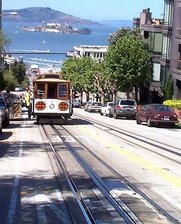



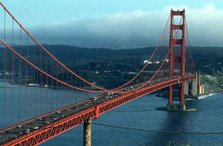



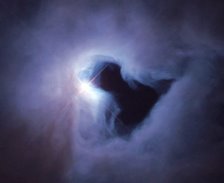






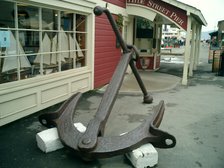



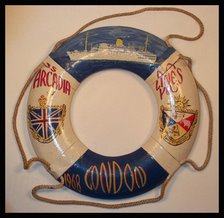


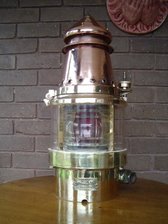



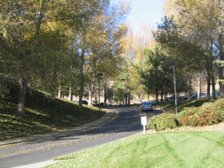















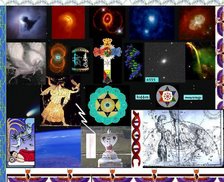
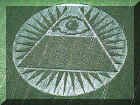
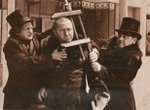
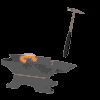


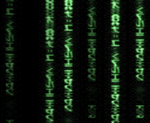
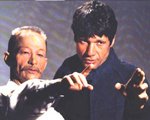

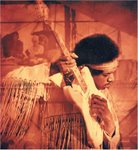














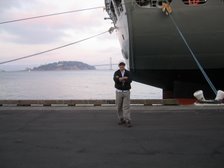

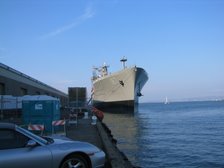

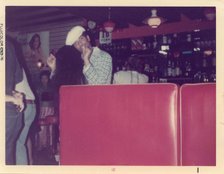
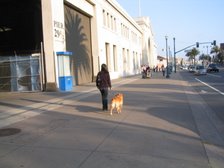












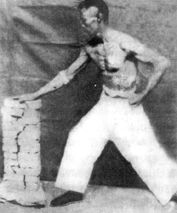



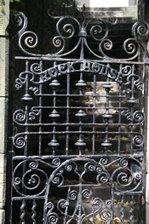

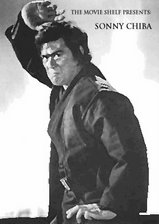







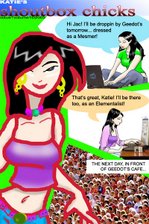
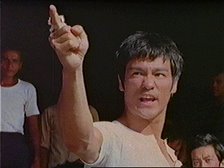


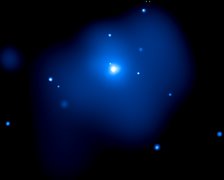
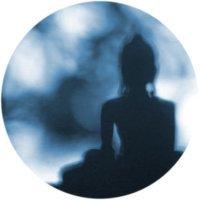



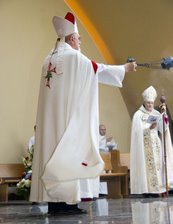
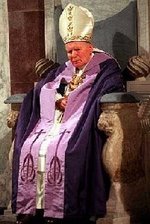
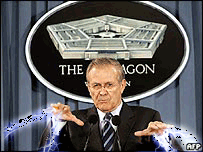

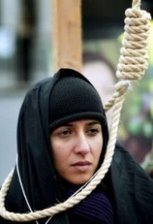

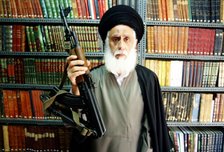



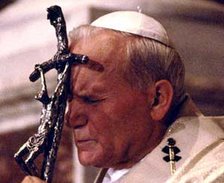



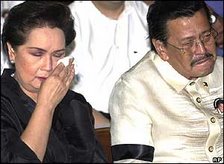





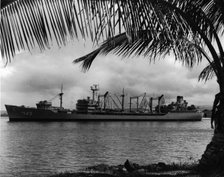











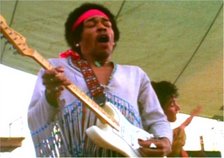
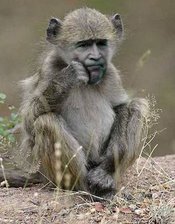

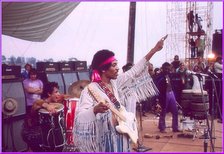
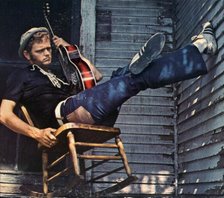

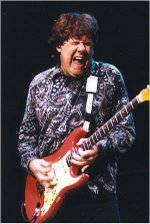
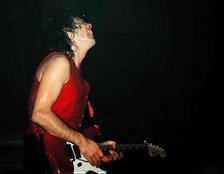

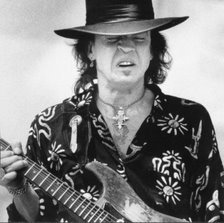

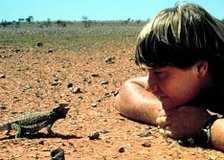

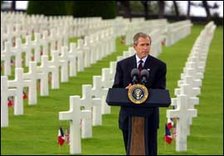
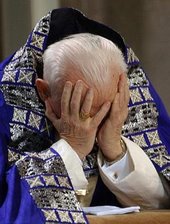






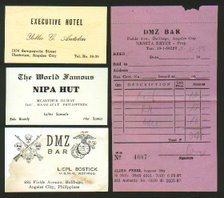
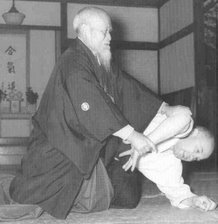

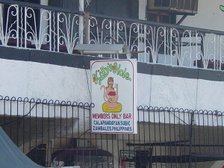












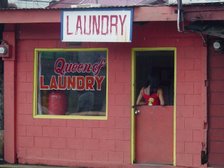

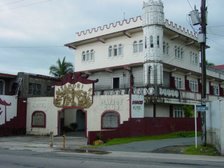
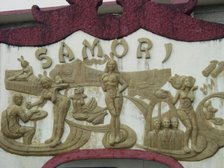







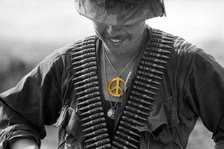


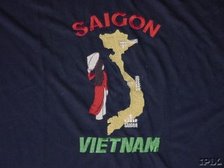



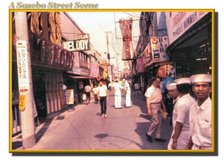
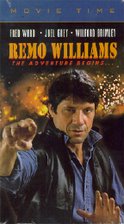
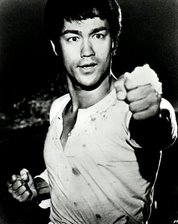
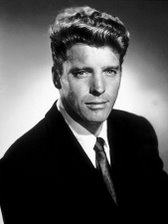
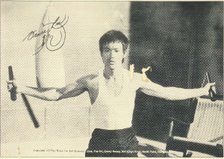


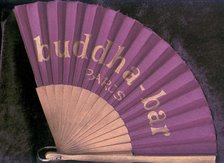
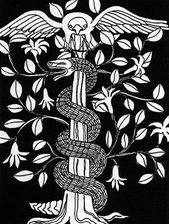
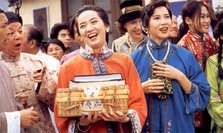

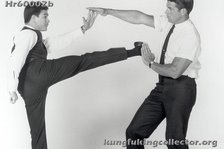
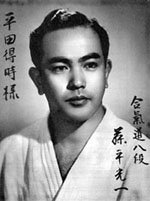



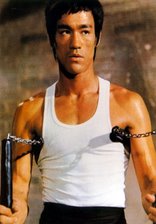
No comments:
Post a Comment